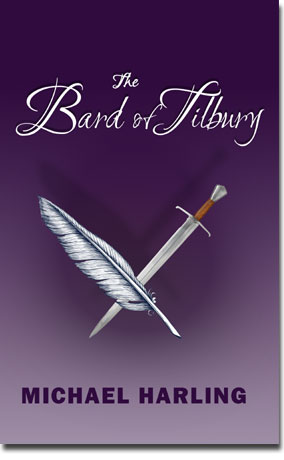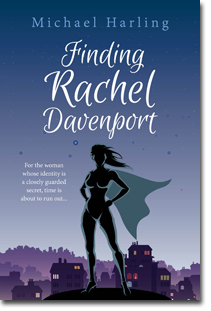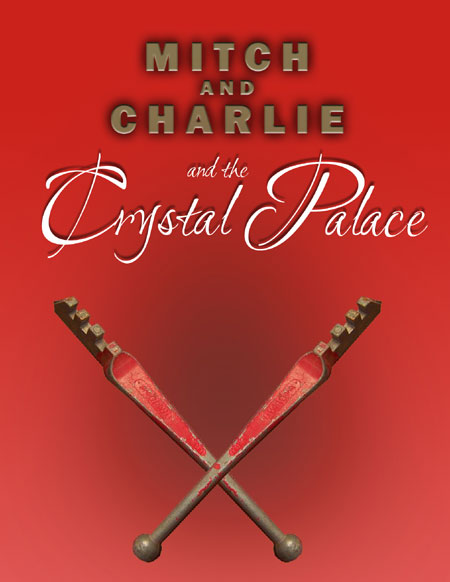Against All Odds
It is done.
The Bard of Tilbury—Book IV in my Talisman Series—is now available on your local Amazon—just in time for Christmas (how’s that for good timing!). This is the simplest, shortest, and gentlest book of the series. It’s sorta humorous, and nobody dies.

I was sure I wouldn’t have it finished until after New Year, but in the middle of November, the final chapters came—suddenly and unexpectedly—together, and I got through it in record time. Or, I simply got so tired of the story that I lowered my standards.
I jest, of course. I realize that I tend to disparage my writing abilities, but that’s not me fishing for compliments, or doing a humble-brag; I simply recognize my limitations.
I am fond of saying, in relation to the series, that the plots are linear and simplistic, the characters two-dimensional, the prose workman-like, and the research sketchy and almost entirely Wikipedia-based. Beyond that, however, I genuinely believe they are solid stories, that the prose—while not world-class—is clear and concise and moves the plot along at a clip. I eschew the fancy words of the Literati—such as Petrichor or Pluviophile—which encourages reviewers to pen accolades that reference “the human condition.” That would be Sesquipedalian, or at the very least Loquacious. I prefer writing that is down-to-earth, and I like endings that are happy and unambiguous.
(BTW: no one really knows what the Human Condition is, but if you can get a reviewer to mention it in relation to your latest book, it will really bump up sales.)
So, that’s the final word on my writing abilities, and the quality of The Series: I’m above average, and The Series is worth a read, if you like that sort of thing.
However, and more importantly, do I consider myself to be a successful writer? And the answer to that is a resounding YES. Success is not always measured by status, awards, popularity and the like. The most important thing is satisfaction, and I am satisfied.
Writing defines who I am and what I do, and I take great satisfaction at seeing the row of books on the shelf above my desk, with my name on them, grow. It’s pleasing to see how my writing has changed—and, I hope, improved—over the years, and I never tire of puzzling out a recalcitrant plot. Also, I have sold a surprising number of books, and made a considerable amount of money. Those totals would, of course, be dwarfed by what Lee Child or J K Rowling tally up on a slow afternoon, but for someone like me, it is a continual amazement.
The humour books—Postcards I, II and Ireland—are still, after nearly a quarter of a century, my best sellers but, to my continual regret, my one and only stand-alone, straight-up novel—Finding Rachel Davenport—hasn’t done as well as I think she should have.
Poor Rachel, she was published by Prospera Press, who specialized in Woman’s Fiction and, as those things go, she sold well the months after the new releases were announced. But once the next releases came along, she fell off the shelf, and no one has picked her up since.

Rachel is Woman’s Fiction in the sense that it’s about a woman, and it’s a Romance in the sense that there is a bit of romance in there, but in fact it is a crime-caper, a thriller (with a literal ticking clock), and a smarter book than some unkind critics would have you believe:
- I found the writing style very boring and the story ridiculous
- I can’t for the life of me see why anyone would think this book funny…I’d call it stupid.
- Badly constructed, poor English, just could not bear to keep going
But, on the other hand:
- A well-paced great read, surreal and funny. A fearless young woman who believes in justice, does good, finds herself, and love.
- A great mix of super-hero nostalgia and fast paced action … a bit of Bridget Jones and a good dose of Carl Hiaasen.
- Action and fun with plenty of lycra
So, swings and roundabouts and all that.
But whether my books are trashed, or lauded, bought, or not, I won’t stop writing them, because it brings me satisfaction, and that, in my view, makes me successful.
With that in mind, next up is…

By the By:
Petrichor: a pleasant smell that frequently accompanies the first rain after a long period of warm, dry weather.
Pluviophile: One who loves rain; one who finds joy and peace of mind during rainy days.
Sesquipedalian: characterized by long words; long-winded.
Loquacious: tending to talk a great deal.


2 Comments
Glenn M.
Well, I haven’t read the books, but will comment anyway, which, I suppose, is part of today’s human condition.
I often think of Rachel Davenport and where the world has taken her – or what she has done to the world.
I think Charlie and Mitch should go back in time and deal with Antidisestablishmentarianism….
gm
MikeH
Ha! I spent so long writing about my fictional Rachel Davenport that I forget she is a real person. Rachel has moved on, and the travel agency she worked in has, sadly, closed 🙁
I would send the boys back to deal with Antidisestablishmentarianism, but they have Hippopotomonstrosesquippedaliophobia – 🙂